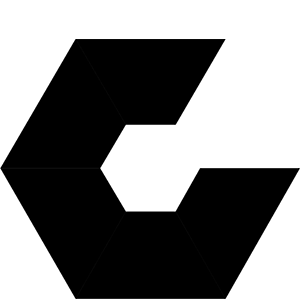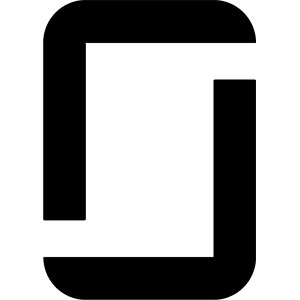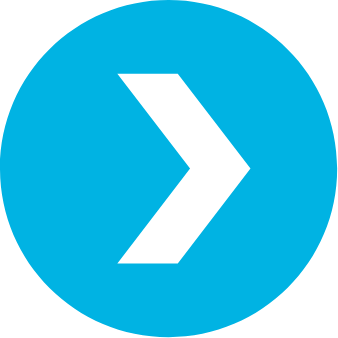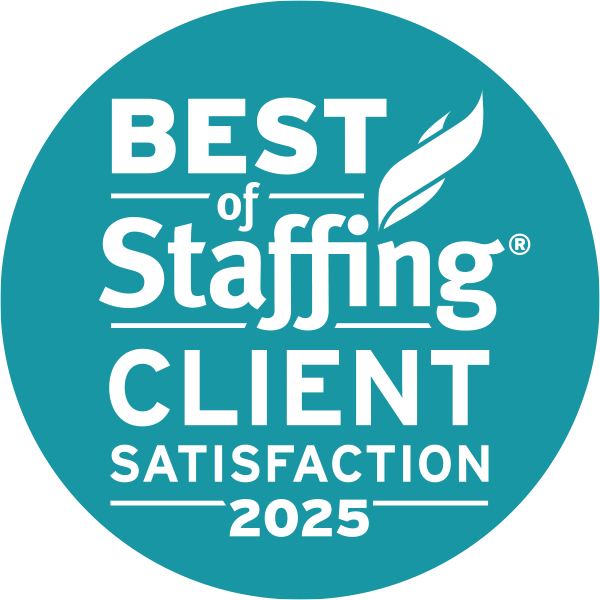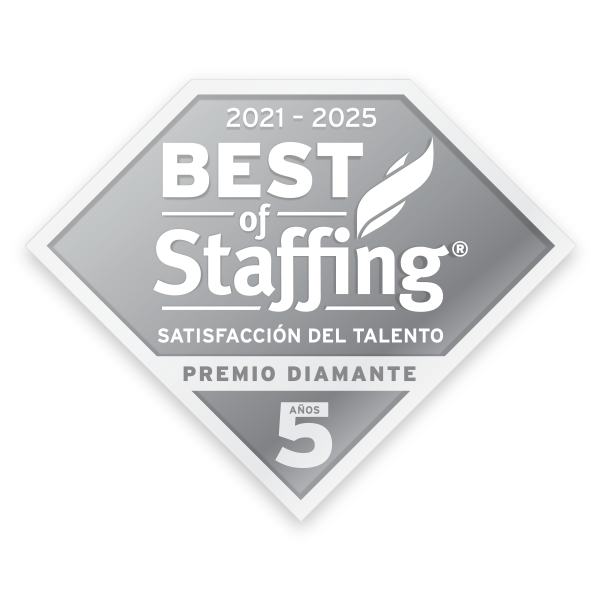
The night before a job interview can be a nerve-racking experience. They’re normally filled with anxiety over what to wear, which talking points to hit and how to address anything that might be considered a blemish on your resume or portfolio. These are all common feelings because, as we all know, in many instances landing a job comes down to how well you performed in the interview. Of course, your ability to perform in any interview setting ultimately comes down to how well prepared you are for the tough questions that are sure to be slung your way. To help you land your next gig, let’s take a look at some of the tougher questions we’ve seen our talent receive, as well as our best advice on how you can answer each next time you’re confronted with them.
1) How many tennis balls fit into a school bus?
It’s not so much about the answer you give, but about how you get there. They want to see your problem solving skills. It’s the kind of question that requires original thinking, so you can’t fall back on what you did at your last job (unless, of course, that job was packing school buses with tennis balls). Your goal is to show you can stay calm and think under pressure and tackle difficult problems when you don’t have all the information. “Well, I would estimate a school bus is usually around ten feet tall, and maybe eight feet wide, and let’s say forty feet long, so the full volume is around 3,200 cubic feet. Then I would estimate a tennis ball is…” you get the idea. Try to solve the problem, but don’t sweat the details.
2) What kind of tree is your career?
Once upon a time, TV journalist Barbara Walters actually asked a similar question to actress Katharine Hepburn. Miss Hepburn said she’d like to be an oak, “very strong, very pretty.” Well played, Kate! This kind of goofy question requires you to relate your personal understanding of your career to your knowledge of the characteristics of certain trees. The question seems indirect and frivolous, but that’s exactly how it forces you to come up with a fundamental truth about yourself without all the usual obfuscation. Maybe the best advice here is to know your favorite kind of tree ahead of time, pick out a few of its key attributes, and then equate those attributes to the best of your career experience and aspirations. If the “tree” question comes up, you’ll be ready.
3) How would you explain back-end development to an 8 year old?
In this example, let’s use “back-end development” as a variable. It can be anything complicated in your line of work, really.
For instance, if you were a physicists applying to become a professor, your hiring manager might ask you to explain the Theory of Relatively to an 8 year old. The point that they’re trying to get at when they ask you this question is: Do you have enough command over your field of expertise to take the most complicated aspects of it and put it into terms anyone can understand? Here’s a trick to prepare for a question like this. Rather than pretending to explain something complicated to your 8-year-old niece, or 8-year-old son, image you’re explaining this very complicated idea or process to someone else’s grandmother. This is an old trick that journalists use to ensure their stories are easily understandable, because when you picture yourself explaining something to someone you know, you might leave out details which you take for granted that person already knows.
4) How does the internet work?
Applying for a job in the digital field? This one is so basic, it may stop you in your tracks. There are two ways to go with a question like this. One, you can actually explain it, but if you do, do so with a minimum jargon. Just like the above, pretend you’re talking to an 8 year old and stick to the basic concept–don’t get caught up in the pixels. The second approach only works for certain types of jobs, the viewpoint is that technical knowledge takes your eye off what really matters, the business itself. For example, most drivers have no idea how their cars work, they’re more concerned about how it looks and that it gets them from point-A to point-B. Similarly, you’re less concerned with how the Internet works, and more concerned with what it does. If you know more than your end users, you might make faulty assumptions about what makes sense to you, but not to them. Still, it might be best to say both, here’s how it works, and here’s why how it works is less important than what it makes possible.
5) What’s your greatest weakness?
Think you know how to answer this question? Think again. The common misconception here is that you should take a strength and disguise it as a weakness. For instance, “I’m a perfectionist.” There are multiple reasons why this answer fails. For one, there are only some many “strengths” that can be disguised as weaknesses (another one is “I work too much”) so if you go this route, you risk sounding like everyone else. Second, it’s a bit deceitful, and that’s definitely not an impression you want to risk making. Third, is that your boss might actually see that strength as a weakness–for instance “I’m a perfectionist,” might be interpreted as “I can never finish projects.” The right route to take, then, is to be honest and pick a weakness that you know you can improve upon, or better yet that you’ve already begun working on. This not only shows humility, but it shows that you’re honestly reflective about your work and interested in improving as an employee.
6) If I gave you $1 million to bet on the future of this industry, what would you bet on?
This question isn’t really too far out of the box, but it does force you to say something interesting about where you think your field of work is heading. You should be able to talk knowledgeably about what aspects of the business are likely to fade (Brick-and-mortar stores. Print publications. Physical media.), and what aspects are likely to become more important over the next decade or so (Virtual reality. Artificial intelligence. IoT.). While no one is expecting you to predict the future, or waiting with bated breath on your insights to make real investments, they are expecting you to backup your claim with sound reasoning. Whether your answer is right or wrong isn’t necessarily important here. What is, is that you’ve painted a picture of the future that’s based on current industry trends and news–and more importantly, that you and your skills fit into this future!
7) What was the last book you read?
This is a loaded question, and one that’s being asked much more frequently in a world where Yellow Journalism has reared its ugly head in the form of fake news. Hiring managers ask this question for a few reasons. For one, reading is an intimate practice, and the books you check off your reading list can say a lot about who you are as a person. Asking this question can also help show where your interest lie–for instance, if the last book you read was career-oriented, it can show your willingness to take on and learn new skills. In either event, the best way to answer this question is honestly, with detail and to relate your choice back to yourself personally when possible. “I actually just finished reading ‘But What If We’re Wrong’ by Chuck Kolsterman. I’ve always been really interested in thought experiments like this, and I feel like reading this helped me look at every, my work especially, a bit differently–or at least from different angles.” One last piece of advice here: If you’re being asked this question, chances are your hiring manager is a reader as well and won’t like a response like, “I’m not much of a reader.” The way to handle that, is to talk about why you haven’t had the chance to pick up a book in a while. “Unfortunately, I haven’t had the time to read for myself of late, since I’ve been taking classes in the evenings.” What they’re looking for is a justification that you’re spending your spare time well.
8) Why are manhole covers round?
This one’s been around for decades, but occasionally still gets asked. Questions like this force you to think about product designs and intentions that go beyond the obvious, stated use cases. Yes, manhole covers actually cover manholes. And they keep people from falling in. And they provide access for workers who need to get under the street. But why are they round? These are some tried-and-true answers that make interviewers happy: (1) A round cover will never fall down into the hole, the way a square one could; and (2) It’s easier to transport, since the cover can be rolled like a wheel and doesn’t need to be lifted. Good answers to know, especially if the interviewer looks really smug when asking the question.
9) What’s the one question you were hoping I wouldn’t ask you today?
Here’s a curveball for you. This question is a twist on number 6, “what is your greatest weakness?” The sneakiest of hiring managers will try to phrase this similarly to how you would ask about a weakness, in order to intentionally catch you off guard and to see if you’ll blurt out a weakness. Why would they want to do that? Simple: This question is an exercise in patience, your ability to listen carefully, and most importantly to think on your feet and provide an honest and thoughtful response in the process. Similarly to the question on weakness, it’s best to be honest and candid.
10) What’s the Angle Between Two Clock Hands When the Time is 11:50?
Really? We’re going there? Okay then. This is a basic math question, but it’s supposed to uncover something about your ability to visualize and translate ideas from one measurement to another. And there are actually all kinds of answers, depending on how you imagine the clock. Do they mean the small angle between the minute hand and the hour hand, or the big angle between the hour hand and the minute hand? Do they assume the hour hand stays on 11 until 12 o’clock, and then jumps to 12, or do they assume the hour hand slowly makes its way toward the 12 as the hour progresses? You might claim this question is designed to weed out younger applicants who grew up with digital clocks and have little experience with how “hour hands” and “minute hands” operate, but probably best to keep that speculation to yourself. Unless, of course, this question has helped you decide you don’t really want this particular job!
11) What Song Best Describes Your Work Ethic?
Similar to the “Tree” question, this one asks you to have good things to say about how hard you work, and musical knowledge vast enough to find a few well-known songs that’ll match. And there’s another dimension to consider, as well: it may help to size up your interviewer and make some guesses about what songs they might know. Advice: don’t mention Todd Rundgren’s song “Bang on the Drum All Day,” whose simple message of “I don’t want to work, I want to bang on the drum all day” is sometimes seen as an anti-work anthem. Instead, choose positive songs that will paint you in a good light. When in doubt, you can always fall back on the obvious “Hard Workin’ Man” by Brooks And Dunn.
12) How Do You Make a Peanut Butter and Jelly Sandwich?
Rest assured, your interviewer already knows how to do this. So your job is to take a mundane task and make it interesting. Has your PB&J process changed over time? Do you now add other ingredients? Do you toast the bread? The trick is to not get too idiosyncratic about it, but to convey some insights about who you are through the simple task of making a sandwich. Sidebar: if they do ask you this question, it’s 99% certain you’ll make yourself a PB&J within a week. Power of suggestion.
13) How Honest Are You?
This one is trickier than it looks. It’s like the riddle about the person who claims everything he says is a lie, should you believe him? Of course, everyone believes they’re honest, even if they’re being dishonest with themselves to think so. A good answer might acknowledge the trickiness of the question, but then focus on real examples that demonstrate your fundamental honesty.
14) How Many People Are Online Right Now?
Again, this is one of those questions that can be answered logically (coming up with some ballpark numbers by making reasonable assumptions), or you can go off in a different direction—philosophical, marketing, demographic, societal, trending, etc. As always, the type of job for which you’re being interviewed will dictate the direction you choose to pursue. But do take the question seriously, and to keep it lively, try to connect your answer to your own interests.
15) Why should I hire you?
You might think the interview is meant to answer this question, but from time to time hiring managers will just get down to business and ask you outright. They’re not looking for you to read their minds, or to even have detailed knowledge of what the company’s current needs are. Rather, this is an exercise in attention to detail. Your goal is to show that you’re more than a headline reader, and that you’ve actually taken time to not only research the company but to determine how you fit into the job description. “I noticed in your job description that you’re looking for a digital marketing manager who has experience in driving traffic inbound leads through SEO. Aside from my Inbound Certification from Hubspot, I spent a lot of time at my last organization…” The point here is to take what they’re looking for in their job description, weave your past experiences into it, and paint a picture of what their organization might look like with you in this new role.
These are just 15 questions, but hiring managers are constantly looking for new ways to come up with tough questions, whose answers don’t live online. If you find these a bit beside the point, or overwhelming, try not to sweat it. Fewer hiring managers are relying on these kinds of questions to hire digital creatives today, because they’ve found better ways to judge talent.
Mainly, they’ve realized that staffing agencies like Onward Search, have the ability to vet talent before they ever get to the interview, so a lot of this psychology is filtered out along the recruitment process.
But still, it can’t hurt to know a little something about your favorite tree. Just in case.
If you’re ready to skip these interview brainteasers and get down to the business of talking about your portfolio and how you think you can help your would-be employer, give us a call. Our team of industry-specific recruiters not only give you advantage with the hiring managers they work with, but they’ll also be there to personally prep you for your interview.
See the salaries of 2023.
Your 2023 Salary Guide awaits you. Gain access to our comprehensive collection of pay ranges for 100+ roles across marketing, creative, UX design, gaming, and more. Thrive in a new age of pay transparency.
